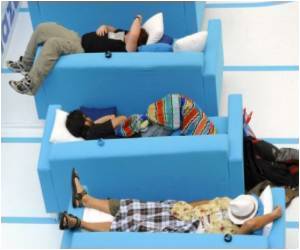If you child hurts himself on sensitive parts and does not want to attend sleepovers because of feat of wetting the bed then you do need to take urological consultations.
If you child hurts himself on sensitive parts and does not want to attend sleepovers because of feat of wetting the bed then you do need to take urological consultations.
An injury is certainly frightening, and “accidents” can cause children embarrassment and distress. The American Urological Association (AUA) has experts available to talk about these important urologic conditions parents may face this school year.Testicular Injury (Torsion)
If your son complains of sudden and severe testicular pain and swelling on one side, he may have testicular torsion—a medical emergency that requires immediate attention. While very rare, testicular torsion can be very serious if not treated promptly. Testicular torsion occurs when the spermatic cord (a cord by which a testis is suspended in the scrotum) gets twisted, resulting in a decrease in blood supply to the testicle and surrounding structures. Torsion can result from scrotal trauma (that see-saw injury) or strenuous exercise, but sometimes there is no obvious cause. Any sudden onset of severe testicular pain is a cause for concern and careful monitoring.
Impaired blood flow to the testicle can lead to tissue death and result in a non-functioning testicle that could become infected and ultimately require surgical removal. Take your son to the emergency room immediately if he complains of sudden and severe testicular pain with swelling on one side.
Bedwetting (Enuresis)
It’s hard to be the only one who can’t stay for the sleepover because you wet the bed. Unfortunately, this is a common problem for children, but it is a symptom—not a disease. The cause of enuresis, or bedwetting, is almost never due to laziness or deliberate willfulness by the child. So be supportive and understanding. Urinary tract infections or structural or neurological problems could be causing your child to wet the bed. Be sure to talk to a physician about your concerns.
Advertisement
- Day and night enuresis
- Day-only enuresis
- Giggle incontinence (the complete or partial loss of bladder control that occurs with laughing or giggling while awake)
- Nocturnal enuresis (classic bedwetting)
Advertisement
Access to the Bathroom
According to a University of Iowa study, 80 percent of teachers surveyed set specific times for students’ bathroom breaks. One-third asked a child requesting an unscheduled break to wait or “hold it.” These practices may be teaching children dysfunctional toilet habits and causing them urinary problems, including urinary tract infections (UTIs).Furthermore, few of the teachers surveyed suspect an underlying health problem when a child wets his or her pants (16 percent) or urinates more frequently than normal (17 percent). In reality, these conditions may be symptoms of other, more serious health problems and should always be reported to parents. Additionally, parents should carefully monitor and talk to their children about their urinary habits. Unusually frequent urination, burning with urination, blood in the urine, incontinence and urine with a bad odor are symptoms of a possible urinary tract infection (UTI). Schedule a visit with your physician if your child experiences any of these symptoms.
As a parent, there are steps you can take to ensure your child’s urologic health at school. Discuss bathroom policies with your child’s teacher and guarantee that toilets are available, when necessary. Encourage your child’s teacher to report any unusual behavior, such as frequent urination during the school day, as soon as possible.
Source-Newswise
RAS/N









